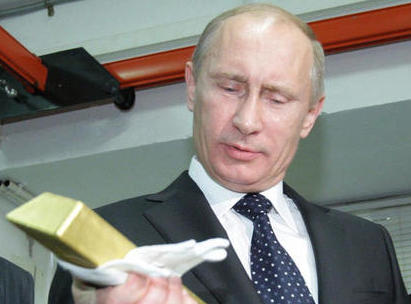Putin the profligate, who’s led Russia in frittering away two vital decades, when the country could have remade and modernized itself with Soviet Era oil money before the supply dwindled and prices collapsed, is well chronicled. Putin the plunderer, the plutocrat, the Kremlin kleptocrat, has also been profiled, but not nearly as often, as retribution for bringing such trespasses to light is heavy. From Rajan Menon’s New York Times book review of Putin’s Kleptocracy by Karen Dawisha:
“He may cop to being an authoritarian (he boasts of building a strong state), a nationalist (he wears a cross, preaches patriotism and praises the Orthodox Church) and an empire builder (he brags about retaking Crimea and is unapologetic about seeking a sphere of influence). But the accusation that he’s a common crook, or even an uncommon one, is different — and a charge he doesn’t treat lightly. That’s why Russian reporters avoid it, especially as political controls have tightened, and why Dawisha’s original publisher, Cambridge University Press, declined to print the book on the advice of its lawyers worried about the possibility of legal action.
The true tragedy is that corruption, state-sponsored, energy-driven and totaling hundreds of billions annually, has mortgaged Russia’s future. Freedom has withered. Money for the investments urgently needed to make Russia innovative and prosperous has been diverted to enrich a few.
Alas, that’s what kleptocracies do.”

